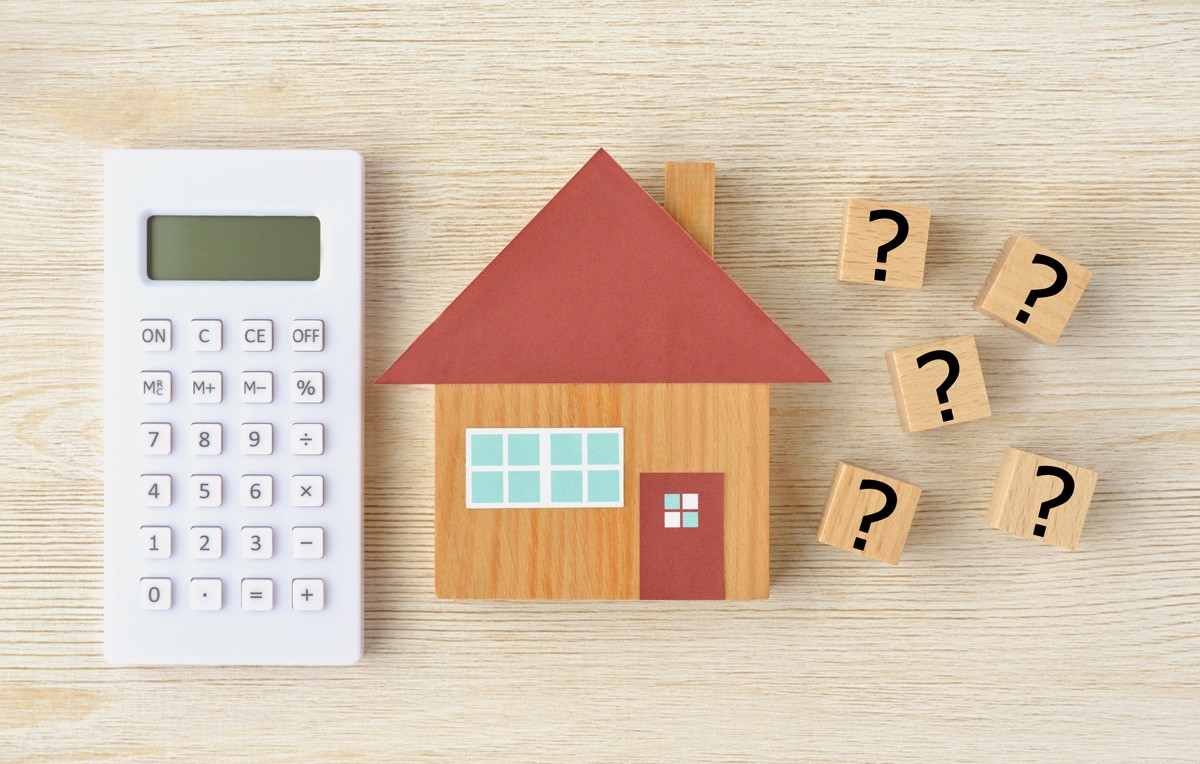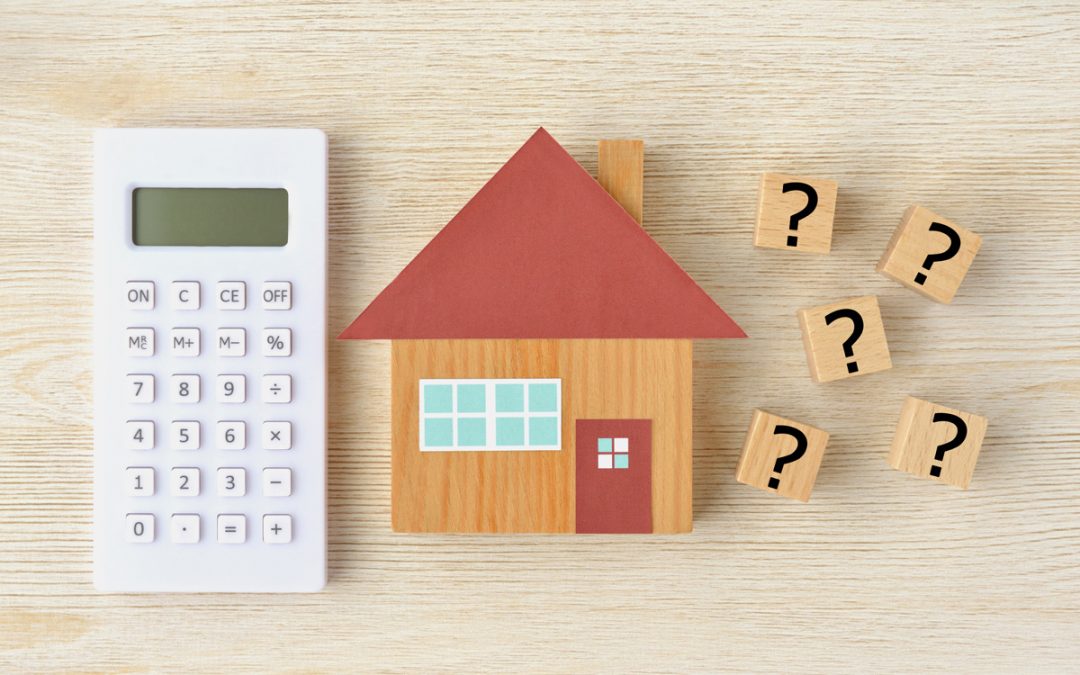
Real estate valuations are essential for property investors, home buyers, and sellers, as well as others. Why is this the case? Because they ensure buyers don’t overpay, sellers are not undersold, lenders are provided with the information needed to approve loans, real estate court disputes are settled fairly, and much more. Also, although properties in an area may be similar, there are many factors that can set them apart financially, and that’s when an appraisal is needed to generate the true value of a piece of real estate.
Let’s dive into the rest of this article to learn more about real estate valuation and the three methods used to calculate a property’s value – the cost approach, sales comparison approach, and the income capitalization approach.
Real Estate Valuation/Appraisal Definition
For those seeking an answer to “what is valuation in real estate?”, first, know that the phrase real estate valuation is also referred to as an appraisal. Second, a real estate valuation or appraisal is an assessment conducted on a piece of property through a specific method of calculation that determines its value.
A real estate valuation is typically performed by an experienced professional, and hired by someone who is in need of an accurate value appraisement of a personal, or investment home, as well as a commercial building. There are many elements that determine the value of a property, this can include location, renovations, the size of the lot the property rests on, economic trends, as well as a variety of other factors. When the valuation is completed, a formal report that details the appraisal is typically generated.
Reasons Why Real Estate Valuations are Needed?
A real estate valuation can be requested for various reasons – from investment purchasing decisions, business and legal matters, to financial requirements. Additionally, different property types are in need of a valuation, this would include residential personal property, residential rental real estate, and commercial properties.
Here are just a few reasons why each property would be in need of an appraisal:
Residential Personal Property:
- Appraisals are used to assist real estate agents and homeowners in determining selling or buying prices.
- Often used by insurance agents to establish the price to rebuild, set prices for adequate homeowners insurance coverage, and to settle a dispute when the homeowner does not agree with the loss settlement.
- House appraisals are used to determine or attempt to lower gift inheritance taxes.
- Used often by underwriters to settle on a value of security for home mortgage loans.
- Real estate valuations are needed for court disputes in divorce proceedings, eminent domain cases, and more.
Residential Rental Property and Rental/Non-Rental Commercial Properties
- To estimate the value of a potential rental property to assess if it’s a worthy investment piece.
- To determine the market value of a forced sale or property sold at an auction.
- Used for insurance-related purposes to ensure proper coverage is received, especially with tenants in place.
- A real estate appraiser may be needed to establish an investor’s portfolio worth.
- Needed by banks who are providing a refinance or original loan to investors or business owners.
How Do You Calculate the Value of a Property?
Since there are various property types, as well as many reasons for needing a real estate appraisal, different valuation methods exist for calculating a property’s worth. Three commonly used methods for determining the value of a piece of real estate are the cost approach, sales comparison approach, and the income capitalization approach.
Let’s dive in to learn more about each property appraisal technique and how they are used to calculate the value of a property:
1. Cost Approach
This method of determining the value of a piece of property factors in three elements – what the land is valued at, the cost to construct an equivalent building, and depreciation. The formula is as follows:
Property Value = Replacement Building Construction Costs – Depreciation + Land Value
Breaking the cost approach down into simple steps:
- Step 1: Appraise the current value of the land as if it were vacant.
- Step 2: Determine the price of constructing a new comparable building.
- Step 3: Estimate the amount of depreciation of the current building.
- Step 4: Minus the real estate depreciation from the construction costs.
- Step 5: Add the current land value to the depreciated cost of the piece of real estate.
Why is the Cost Approach Used for Home Appraisals?
This particular real estate valuation method is useful when there are not enough comparable sales/properties in the area. The cost approach is also utilized for unique properties, newly built properties, and proposed construction projects. It can also be helpful for insurance purposes to determine the value of a property, if it were to be destroyed by a fire, for instance, in the future.
2. Sales Comparison Approach
The sales comparison approach, which is also referred to as the market approach, is a real estate valuation method that formulates a property’s worth by comparing similar properties that have recently sold, or newly listed properties. It relies heavily on current market data, and three to four property comparisons are recommended to come up with a good price range.
The properties should be as similar as possible, have been recently sold, preferably no longer than a year ago, and should have also been sold with market conditions that are typical – nothing out of the ordinary that makes it a unique sale.
What Elements are Normally Considered When Appraising a Home with the Sales Comparison Approach?
Since no two homes are typically exactly alike, when viewing comparable properties, certain elements should be taken into consideration:
- The size of the lot the property sits on.
- The location since neighborhood prices may vary.
- Zoning laws in the neighborhood.
- Age of the properties.
- Total square footage and the number of bedrooms.
- Amenities such as a pool, upgrades done to the kitchen, windows, HVAC system, and so on.
The sales approach is normally used by property investors, real estate brokers and agents, and the like.
3. Income Capitalization Approach
Often just referred to as the income approach, this method of appraisal allows for the estimation of the value of a piece of real estate based on the income that it will generate. This is done by dividing the net operating income (NOI) by the capitalization rate (cap rate).
Net Operating Income ÷ Capitalization Rate = Property Value
For those of you who are not familiar with net operating income or capitalization rates, it might be difficult to complete the above formula. With that said, let’s look more into these two items:
What is Net Operating Income (NOI)?
The NOI is the income that’s remaining once all operating expenses (maintenance, insurance, property management fees, and the like) have been subtracted, as well as other items that reduce the overall income. As an example, a rental property has an income of $100,000 a year, and also has $70,000 in operating expenses – the net operating income, in this case, would be $30,000.
What is a Capitalization Rate (Cap Rate)?
The cap rate is used to determine an estimated rate of return that an investment property will generate. It can be calculated by taking the NOI and dividing it by the current market value of the property.
Cap Rate = Net Operating Income ÷ Current Market Value of Property
A higher cap rate is generally what an investor is looking for when evaluating a potential property.
Let’s break the income approach down with this simple example:
- Step 1: Investor calculates a net operating income of $40,000.
- Step 2: The cap rate is then calculated and comes to 0.062.
- Step 3: Investor divides the NOI of $40,000 by the cap rate of 0.062.
- Step 4: The income approach yields a final property value of $645,161.
Keep in mind that the income approach doesn’t focus on the condition of the building or expenses that may unexpectedly come up in the future, and so on. An investor may have to do some additional research to determine if a property is going to be truly profitable or not.
Why is the Income Approach Used to Find Real Estate Values?
This particular approach is used for real estate valuation purposes mainly for income-generating properties such as residential rental real estate or commercial properties. It’s often needed by real estate investors and bank lenders.
Real Estate Valuation Commonly Asked Questions
As someone who is interested in real estate valuations, you most likely have many questions. With that said, below you will find three of our top questions that may interest you:
1. What is the Market Value in Real Estate?
It’s an estimated value of a property’s worth based on what home buyers might pay when considering the current competitive market in regards to what other properties are selling for in a particular location – it’s closely related to the supply and demand factor. What can affect the real estate market value of an area? The answer is existing home sales, crime rate, population growth, the job market of the area, vacancy or foreclosure rates, and more. Assessing property by market evaluations alone typically does not provide the detailed appraisal report that is often needed; however, this can be accomplished through an official real estate valuation.
2. Does a Fannie Mae Loan Require an Appraisal?
If you’re trying to obtain a loan through Fannie Mae, know that they typically require the final report that is generated in a real estate valuation. This appraisal report is needed for the underwriting decision-making process. In some cases, Fannie Mae will waive the appraisal process, but only under certain conditions. You can view the Fannie Mae Appraisal Waivers Fact Sheet for more information.
3. Will Digital Real Estate Valuations Replace Traditional Appraisal Services?
Although we can’t say for sure that the traditional appraisal model will be replaced by technology, we do know that some companies are transitioning towards that goal. They see a need for a valuation method that offers the same perspective and appraisal methods for each property.
Some say today’s method of appraising can vary greatly from appraiser to appraiser, which can generate different home values for the same property. Because of this, and the goal of attempting to streamline the process so it’s quicker and more cost-effective, digital appraisals are on the rise with advanced computer algorithms that contain accurate market insights, property characteristics, the usage of drones, and other digital technologies.
At this time, at most, appraisal companies may be doing a hybrid real estate valuation – part digital and part manual. Forbes dives into this topic in their article – The Residential Appraisal Process Needs A New Standard.
Additional Morris Invest Real Estate Articles
If you are here today looking into how to calculate a home value because you’re a real estate investor, then you will be interested in reading some of our articles that pertain to investment properties, and more.
- Is a cost segregation study worth it? Find the answer in this article!
- Dive into this post that details why a turnkey property is a good investment.
- Find out what the BRRRR method is and how you can profit from it.
- Which is the better investment – stocks or real estate?
- Learn all about estate planning and why it’s so important.
- Read this post on rental income and taxes so you’re on top of your game.
- Find out why equity is important when it comes to your real estate portfolio.
- Texas real estate is less expensive, which makes it ideal for investors.
- You can buy financially out-of-reach properties with multiple investors.
- See how you can increase your property’s cash flow with the BRRRR method.
Use Real Estate Appraisal Methods for Generating Accurate Property Values
The three valuation methods discussed are the most commonly used in establishing accurate property values, so if you were seeking information on different methods for appraising a property’s worth, we hope that one of the above methods works for you and your specific situation. Additionally, if you’re a real estate investor currently looking for a turnkey property, our full-service investment company can provide you with a cash flowing rental property, where all the details are taken care of for you, from start to finish – from finding a lucrative rental market to placing a tenant for you. Feel free to schedule a complimentary call to speak with someone from Morris Invest about what we can do for you to help you reach your investing goals.
Take a moment to watch this quick video that touches on the range of real estate values of Morris Invest properties:
Ready To Build Passive Income Through Rental Real Estate?
Ready to talk about your goals? We're here to show you the tools and teach you the process to begin earning legacy wealth for you and your family.







